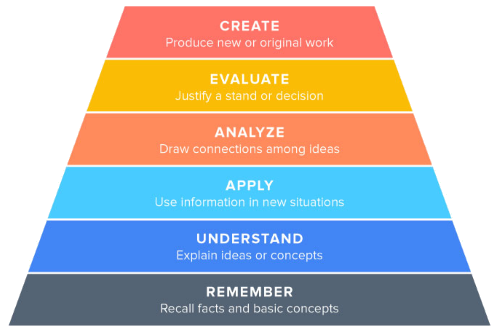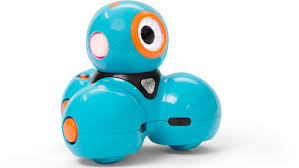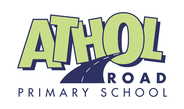Learning
Personalised Learning
Personalised Learning at Athol Road Primary School is the tailoring of pedagogy, curriculum and learning environments to meet the needs and aspirations of individual learners through:
- a highly-structured approach that places the learning needs, interests and learning styles of students at the centre
- assessment that is related to meaningful tasks and includes both summative and formative assessment
- a focus on improving student outcomes for all and a commitment to reducing the achievement gap
- engaged learners who are informed and empowered through student voice and choice
Personalising Learning includes a commitment to:
- lifelong learning and the provision of flexible learning environments
- a range of educational pathways to meet the needs of all students
- a tailored education for every child and young person, that gives them strength in the basics, stretches their aspirations, and builds their life chances. It will create opportunity for every child, regardless of their background.

At the heart of personalisation is the expectation of participation, fulfilment and success.
Athol Road Primary School operates as a Professional Learning Community with a commitment to continuous improvement.
Professional Learning Teams:
- Focus on Learning, Collaboration and Results
- Use the four critical questions to plan teaching around the learner
What do we expect our students to learn? How will we know when they have learned it? What do we need to do if they haven’t learnt it? What do we do if they have learned it?
- Take into account the 12 Considerations for Learning
Modelling and exemplars, Desire, Expectations, Questioning, Resources, Prior Knowledge, Support and Safety, Self Assessment, Reflection and Feedback, Lifeworlds, Observing, Listening and Feeling
- Use Whole School Continuums and Essential Learning Mini Continuums for formative assessment
Through discussion we comprise and modify the curriculum, teaching structures, and teaching approaches making sure instruction is relevant, flexible and responsive to the needs of the learner leading to successful achievement and the development of students as self-regulated learners. All members of the team are responsible for all learners.
Success Story
The ‘My Success Story’ folders are used to show the student’s growth in key learning areas over a year to reflect development and celebrate their learning achievements. Students choose what they want to go into these to show their learning journey based on the goals that have been set.
The Digital Learning team are currently evaluating the option of introducing an online, digital portfolio system.
Literacy
At Athol Road Primary School teachers work collaboratively to foster a love of literature, literacy and language in order for students to become fluent, effective members of a literate society. The literacy program caters for individual differences enabling students to reach their full potential by incorporating their interests and cultural backgrounds. The rich, engaging literacy program which has a strong emphasis on oral language skill development, supports students to be articulate, effective communicators.
“Education is not filling a bucket, but lighting a fire”
William Butler Yeats
Inquiry Learning and thinking skills are strong components of our Literacy curriculum at all levels. In-school visits, excursions and interesting learning experiences build literacy skills in context.
In Foundation to 2 – there is a strong emphasis on the language experience approach where students are exposed to experiences which generate oral and written language which is used to explicitly teach reading, writing, spelling and speaking and listening. The importance of relating the student’s oral language to written language and of relating reading to writing is emphasized in the motto ‘Anything I can say, I can write; anything I can write, I can read’
Students are taught language features such as phonics, spelling and text construction through their shared experience writing and engagement with children’s literature. Drama, song and movement are integral components of our early years literacy curriculum.
Good readers are good thinkers! In Years 2 – 6 Reader’s Workshop focuses on explicitly teaching the reading and comprehension strategies used by ‘good readers’. Teachers model these strategies using rich, engaging literature during shared and guided reading sessions. Students are encouraged to select and read books in which they are personally interested and are able to understand and read fluently. They make their thinking visible by recording the strategies they are using whilst they read. Teachers conference students individually to evaluate progress and collaboratively set goals based on a reading continuum.
Writer’s Workshop focuses on explicitly teaching the text structure and language features of each text type through modelled and shared writing. Students engage in authentic, purposeful writing tasks in which they have an opportunity to express their individuality and interest.
Information Communication Technology is an integral component of literacy teaching and learning at Athol Road Primary School. Tools such as interactive whiteboards, flip cameras and ipads are used by teachers and students to communicate, collaborate and publish their work.
Our teachers recognise the important role that parents, as the first teachers of their child/ren, play in student learning. Parents are encouraged to continue taking an active role in developing their child’s literacy skills through such things as listening to their child read each night and talking about what they have read.
Numeracy
At Athol Road Primary school, Numeracy involves interaction and negotiation of the ‘big ideas’. Contemporary approaches include the following: extended investigations, rich tasks, open-ended questions, games, discussion of solution strategies, mental computation and visualisation. Numeracy is linked to other areas of the curriculum and to the students’ everyday lives. At Athol Road Primary School we make numeracy practical, where students have an opportunity to learn using a range of learning styles.
Planning is driven by student needs and ongoing assessment which leads to student goal setting to personalise the learning for each student. At Athol Road Primary School teachers inspire learning and engage students in their learning.
Teachers work with targeted needs groups to model and discuss mathematical concepts, strategies and skills at the student’s point of need. During independent time students practice these skills and strategies by using maths equipment, ICT, maths games and mathematical investigations, all designed to reinforce the concepts.
In Numeracy students follow a series of problem solving strategies to promote questioning and sharing of alternative strategies through collaborative learning experiences. Students are encouraged to make connections and build their understanding of how Numeracy is important to their everyday lives.
Maths Profile
At Athol Road Primary School, Mathematics learning is centred on the ‘big ideas’ of number – trusting the count, place value, multiplicative thinking and partitioning. Students learn to work with numbers in a variety of ways such as exploring solutions to challenging problems and identifying the most efficient strategy. It is the school’s belief that a strong foundation in these areas supports learning in measurement, geometry, statistics and probability.
Mathematics is more than just numbers and solving equations. Mathematics helps students to make sense of the world around them! Patterns in nature, following directions, understanding money, reading the time, measuring ingredients when cooking are just some example of how mathematical concepts are applied in everyday life. Today’s students will face challenges that require flexible thinking including reasoning and analysis. ARPS teachers build these skills into their teaching to prepare students for the future.
Vibrant learning experiences that link to real world contexts help students to develop curiosity and take risks in order to solve challenging tasks. Making a mistake is valued as an opportunity to improve. With support, students identify misconceptions and clarify their thinking. They are encouraged to see themselves as mathematicians, ask questions, take risks, explain their process and provide justification for their thinking.
The Mathematics program at Athol Road Primary school is enhanced by:
- developing language that enables students to talk and write about mathematics
- guiding discussion that enhances student ability to reason and make mathematical generalisations
- planning activities that build upon student experiences and individual learning needs
- goal setting based on the school’s developmental continuum
- incorporating ICT as an integral part of learning, including mathematical digital learning platforms such as IXL and Maths 300
- providing experiences that enable students to apply Mathematics to practical problems using various strategies such as open ended tasks in real life situations
Specialist Programs
Physical Education
Prep – 2 The Physical Education program focuses on developing fundamental skills. These include throwing, catching, bouncing and beginning to run using an effective technique.
Year 3 – 6 students develop fundamental skills to a higher level whilst also working on fitness in preparation for events such as cross country and school athletics and learning minor games skills.
Year 5 – 6 students are introduced to a range of sporting activities to develop the skills required to participate in competitive sports with a strong focus on personal choice and goal setting.
Environmental Studies
The focus of the Environmental Education program is about caring for our environment. Students build their understandings around:
WATER – why it’s important and how we can look after it
RUBBISH & RECYCLING – where does our rubbish go and why recycling is important
GREEN POWER – looking at other ways to make electricity such as solar and wind and understanding how to decrease our electricity use
POLLUTION – human impact on the natural environment.
Visual Arts
The Visual Arts program provides an opportunity for students to use a range of open-ended materials and resources that empower them to explore, experiment, investigate, create, extend, build upon and develop interests, experiences and skills that spark imagination.
Technology is used as a tool in Visual Arts ie. students use the Enchanted Learning program to search for topics and research special artists. Entering student art work in the Dandenong Show acknowledges and celebrates student achievement within our local community.
Performing Arts
Performing Arts is an important part of a child’s education as it supports the development of creativity and confidence. Imaginative play stimulates and challenges the brain and allows children to be innovative and broad-minded. Presenting ideas or performing in front of an audience, however big or small, develops confidence and is a valuable skill in many areas of life. The disciplines of Music, Dance and Drama are incorporated in our program.
Languages Other Than English: Mandarin
“Language learning provides the opportunities for students to engage with linguistic and cultural diversity of the world and its peoples, to reflect on their understanding of experiences in various aspects of social life, and on their own participation and ways of being in the world” (ACARA, 2016)
In 2016, Mandarin was introduced to students from Foundation to Year 2 and will continue to be introduced at Foundation each year.
Digital Learning:
At Athol Road Primary School Digital Learning is one of the core strategic goals of the school’s Annual Implementation Plan [AIP].
Digital Literacies are the set of competencies required for full participation in a knowledge society. It includes knowledge, skills, and behaviours involving the effective use of digital devices such as smartphones, tablets, laptops and desktop PCs for purposes of communication, expression, collaboration and advocacy. Digital literacies are the set of competencies required for full participation in a knowledge society.
Students with access to a device and the Internet are able to find the answers to not only simple questions, but also incredibly complex problems. However, there is a significant difference between Googling an answer and understanding why – we want students to gain the deepest level of understanding when faced with a problem.

Athol Road Primary School is a Google Workspace Learning School. All students have access to a Google Workspace managed account with all students in Year 3-6 having their own Department of Education and Training [DET] managed account – including GMail and Google Drive.
All students enjoy access to a range of devices – notebooks, iPads, tablets and work-stations – across a range of platforms. Students in Years 3-6 participate in a school funded 1:1 Chromebook program.
Our school collects information about students and their families when necessary to:
- Educate students
- Support students’ social and emotional wellbeing, and health
- Fulfil legal requirements, including to:
- take reasonable steps to reduce the risk of reasonably foreseeable harm to students, staff and visitors (duty of care)
Dash Review by Jessie
What Dash is good at:
Dash is an unexpected robot. He is very playful and has a very good sense of humour.
In my opinion, Dash is an adorable and fascinating robot, who is very cute. Dash can do many things but you need to do more coding for him to do other moves.
What he is not good at – can be worked on:
He may be a bit clumsy and he may be a bit too talkative.
What things I found interesting:
The types of things I found very interesting is that when you stick your hand right in front of Dash’s eye, his head moves when you move your hand.
My Verdict:
The point is that I believe that Dash will help younger students, for example Year 1-2 because he is very interesting to be able to look at and laugh at. Dash can be controlled by an app which is called “Blocky”. On the app, you can record voices and it will take about 2 minutes to translate to Dash. You can make the robot have silly sounds for example: elephant noises and I can’t remember the others. Dash can be changed to different colours of example: purple, blue, orange, red, green, yellow and all the colours from the rainbow.
Without any concerns, Dash is lovely and has no problems being here at ARPS!! [Well Mrs Toombs may have to agree with that.]
By Jessie
Student Leadership
At Athol Road Primary School the Student Leadership is comprised of students elected to leadership positions by their peers and teachers. Student leaders have been entrusted with the responsibility of representing the school in an honourable manner and are expected to:
- Demonstrate leadership and responsibility
- Demonstrate a commitment to developing their skills as a student leader
- Behave in a manner that reflects positively on the school
- Participate fully in a range of school activities
Responsibilities outlined below, while relative to the positions held, are not intended to be exclusive. All responsibilities are overseen by the Student Leadership coordinator/s and be implemented in line with school policy guidelines.
Student Leaders will:
- Run fortnightly whole school assemblies
- Represent the school on official occasions
- Welcome visitors to the school for special meetings, etc.
- Introduce and thank special guests
- Make speeches as and when appropriate
- Conduct school tours where appropriate
- Report to School Council
Student Voice Council will:
- Have direct input into the organisation of school functions
- Represent the student body
- Have input into developing/reviewing policies which directly affect students
- Report feedback to students in a variety of forums ie. classroom, area assemblies and/or whole school assemblies
- Write reports for the school newsletter
- Play an active role in making the school a safe and friendly place for students
- Organise Reward Time activities
- Manage the Social Service Program
House Captains and House Vice Captains will:
- Manage the PE equipment borrowing system
- Assist in the organisation of House Sports
- Manage the weekly House Points system
- Report House Points at Assembly
- Report Interschool Sport Results at Assembly
- Set up Sport activities
- Manage the school recycling
- Monitor safety in the yard e.g. mulch, playground issues
- Monitor Environment issues e.g. litter, toilet taps
Peer Mediators will:
- provide additional supervision in the yard and assist in dealing with minor issues
- liaise and report to the yard duty teacher
